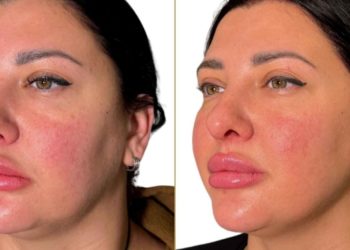Nowadays, health care is increasingly dependent on technology for the management of sensitive health information. While these technological advances enhance the level of care afforded to patients and provide seamless processes within the medical setting, they also beg the question of significant concerns with regard to data privacy and security. It is herein that the General Data Protection Regulation, in particular about sensitive health data, comes into great prominence. It is equally important from an institutional point of view as it is for the patients to understand and adhere to all GDPR rules concerning consent in healthcare, in order for sensitive data to be treated with full respect for the highest legal standards possible.
Understanding the Role of GDPR in Healthcare
The General Data Protection Regulation, commonly called GDPR, took effect in May 2018 to protect personal information belonging to individuals residing within the EU. It applies to all industries, but health ranks atop because of the sensitive nature of information it deals with. Medical records, test results, and treatment histories carry private information; its improper handling could lead to identity theft or discrimination, thus causing harm to the well-being of an individual. Therefore, the GDPR healthcare has some strict rules on collecting, processing, and storing data of this type.
The cardinal most important way that GDPR applies to healthcare relates to patient consent. Consent, therefore, becomes obligatory not only for treatment itself but also for use in medical research, digital services, or insurance claims. In the absence of proper consent, it may be regarded as a violation of GDPR, with considerable fines and legal complications thereafter.
The Importance of Consent Under GDPR
Consent lies at the heart of GDPR, specifically for industries like health care that deal with sensitive information. Free, specific, informed, and unambiguous, are just some of the characteristics the GDPR imposes on consent. Consent shall be clearly explained to patients for the purposes for which their data shall be used, enabling them to withdraw such consent at any time. That gives the individual autonomy by granting them rights to control over their personal health data, and preventing misuse or unauthorized sharing.
Since valid consent must use non-intimidating terms that are clearly comprehensible to the patient, healthcare organizations must ask for consent accordingly. Under the GDPR, no ambiguities in wording or clauses deep inside the contract are tolerated. The demand for consent should also be kept separate from any other terms and conditions so that no patient feels compelled into giving consent.
How GDPR Shapes Healthcare Data Management
Apart from consent, GDPR prescribes how data is to be processed and stored. Every consent that a healthcare institution gets must be recorded on paper. This includes the date and time the consent was obtained, the purview within which the consent was obtained, and any changes in that respect or withdrawals. The process should be transparent, where it is possible that such records are available when needed by either the patients or healthcare providers.
Moreover, GDPR requires an organization to take all the necessary measures for sensitive health data protection using encryption and pseudonymization among other security tools. This assists in minimizing the risk of unauthorized access or breaches. A breach involving health information should be reported to relevant authorities within 72 hours, emphasizing the high level of accountability that must be maintained by providers of healthcare.
Navigating the Complexity of GDPR in Healthcare with Compliance Tools
It is daunting for any care provider to navigate through the complexities of GDPR; hence, that is why many healthcare providers are turning to GDPR compliance software. These utilities help healthcare organizations facilitate the process of gathering and managing patient consent, hence ensuring it meets these stringent requirements under GDPR. Applications like these will ease tracking consent and make sure that proper data protection measures are in place.
Most compliance software automatically maintains records, manages breach notifications, and provides auditing tools to support health professionals in offering transparency and accountability. Due to the introduction of digital health services, compliance tools have become a significant requirement in handling considerable volumes of patient data efficiently as well as securely.
Data Protection Officer Role in Health
In fact, the GDPR itself demands that in cases of large-scale handling of sensitive data by healthcare institutions, there shall be appointed a Data Protection Officer. A DPO ensures that the organization is in compliance with the GDPR, particularly on matters related to patient consent and data processing.
In that regard, DPOs also act as the interface between the health care provider organization and the regulatory authorities in reporting data breaches and managing them in accordance with the rules laid down in GDPR. They also offer periodic audits and advisement to organizations on best practices regarding data protection. A number of healthcare organizations find necessary the use of DPO software in managing the role of a Data Protection Officer. This software supports the DPO by automating audits of data, consent tracking, and ensuring that healthcare providers meet rigid data protection requirements through the GDPR.
How GDPR Affects Healthcare Research
It goes on to have a serious implication on healthcare research that is based on patient data. Even though GDPR allows for the processing of sensitive data on grounds of scientific research, consent from participants is still regarded as necessary. In this regard, the researchers will be expected to spell out with precision how data would be put into use, the people who would get access, and what potential risks are involved. Such transparency will ensure trust in the handling of patient data in an ethical manner.
However, GDPR does grant some exemptions for research: For example, anonymized data can be used without explicit consent. These are expressly aimed at facilitating scientific progress with due protection for privacy. This calls for great care in navigating these complex regulations by healthcare organizations that are involved in research to avoid violations of GDPR while innovating.
The Challenges of GDPR Compliance in Healthcare
While GDPR underpins vital protections for patient data, in practice, it often proves challenging to comply, particularly for smaller healthcare providers. Keeping pace with the shifting sands of GDPR’s requirements alone, managing volumes of sensitive data, and monitoring consent in a compliant way can be a job-consuming task.
There is, indeed, the need to balance protection with efficiency in care. While patients want speed and convenience in healthcare delivery, GDPR does tend to be time-consuming at times, especially when it comes to acquiring and maintaining consent. Providers thus have to work out how to integrate GDPR compliance into their operations without interfering with the care of patients.
The Future of GDPR and Healthcare
This means that with the development of healthcare into telemedicine, digital health services, and many more, the importance of GDPR compliance will keep on growing. Healthcare service providers will need to protect sensitive data about patients while providing personalized and efficient care.
Exciting new opportunities for improving patient care with AI and big data analytics introduce new challenges in the context of data privacy. Healthcare organizations need to keep pace with these trends by keeping themselves updated about changing data protection practices and invest in the necessary toolsets that help them realize actual GDPR compliance.
The Summary
GDPR has transformed the way healthcare organizations process sensitive patient data, especially in obtaining and managing consent. It therefore follows that compliance with GDPR is a legal and ethical duty since the maintenance of patients’ trust would be assured and personal health information would be used and processed in a responsible manner. With the help of compliance software and data protection software, health care providers will be able to meet the challenge of compliance with GDPR and assure protection of data of patients while providing quality care. As the health sector continues to change along with time, so will the demand for robust data protection measures capable of ensuring patient privacy in today’s digital world.











































































